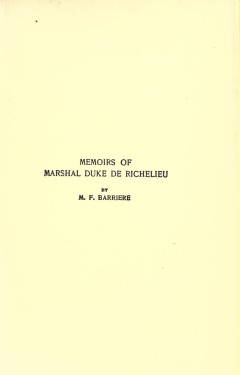Filter by

Quodons in Mica; Nonlinear Localized Travelling Excitations in Crystals
Buku ini menyajikan pengetahuan terkini tentang eksitasi perjalanan lokal nonlinier dalam kristal. Eksitasi dapat berupa getaran, elektronik, magnetik, atau berbagai jenis lainnya, dalam berbagai jenis kristal, seperti silikat, semikonduktor, dan logam. Buku ini didedikasikan untuk ilmuwan Inggris FM Russell, yang baru saja berusia 80 tahun. Ia menemukan 50 tahun yang lalu bahwa mineral mika mu…
- Edition
- 221
- ISBN/ISSN
- 978-3-319-21045-2
- Collation
- -
- Series Title
- Materials Science
- Call Number
- 539.7 ARC q

Quantum Adaptivity in Biology: From Genetics to Cognition
Buku ini mengkaji pemrosesan informasi yang dilakukan oleh biosistem pada semua skala: dari genom, sel, dan protein hingga sistem kognitif dan bahkan sosial. Buku ini memperkenalkan prinsip teoritis/konseptual berdasarkan informasi kuantum dan teori probabilitas non-Kolmogorov untuk menjelaskan fenomena pemrosesan informasi dalam biologi secara keseluruhan. Buku ini dimulai dengan pengantar yan…
- Edition
- -
- ISBN/ISSN
- 978-94-017-9819-8
- Collation
- -
- Series Title
- -
- Call Number
- 539.7 ASA q

Quantitative Parameterization and 3D-run-out Modelling of Rockfalls at St…
Dinominasikan sebagai tesis Ph.D. yang luar biasa oleh Technische Universität München, Jerman, Secara langsung menggabungkan hasil investigasi lapangan di area sumber dengan pemodelan run-out, menghasilkan pemahaman yang lebih baik tentang proses runtuhan batu, Menampilkan investigasi lapangan yang unik dari permukaan kegagalan yang dapat diakses di bawah blok karbonat 200 m3 yang kritis, ber…
- Edition
- -
- ISBN/ISSN
- 978-3-319-24510-2
- Collation
- -
- Series Title
- -
- Call Number
- 551.3 SEL

Quality of Machined Wood Surfaces
1. Memberikan gambaran menyeluruh dan terperinci tentang kualitas permukaan kayu yang dikerjakan, 2. Meliputi banyak hasil dan representasi eksperimen baru, 3. Menawarkan konten yang berharga bagi para ahli dan praktisi penelitian ;;; Tujuan dari monograf ini adalah untuk mengkarakterisasi dan mendeskripsikan kualitas permukaan kayu yang dikerjakan, sedangkan perhatian khusus diberikan pada uti…
- Edition
- -
- ISBN/ISSN
- 978-3-319-22419-0
- Collation
- -
- Series Title
- -
- Call Number
- 674.2 CSA q

Memoirs of Duke de Richelieu
History of Mme. la marquise de Pompadour, mistress of Louis XV. n6e Poisson, wife of M. le Normand d'Etioles. — Binet, a relative of hers, procures her for the king. — Uneasiness of Boyer and of the pious party. — Two parties were produced at the court, that of the favorites and that of the dauphin. — Their reciprocal views and interests. — Portrait of M. d'Etioles, husband of the fav…
- Edition
- -
- ISBN/ISSN
- -
- Collation
- No. 26 of 52 numbered and registered sets
- Series Title
- 2
- Call Number
- -

The Politics of Invisibility: Public Knowledge about Radiation Health Effects…
Before Fukushima, the most notorious large-scale nuclear accident the world had seen was Chernobyl in 1986. The fallout from Chernobyl covered vast areas in the Northern Hemisphere, especially in Europe. Belarus, at the time a Soviet republic, suffered heavily: nearly a quarter of its territory was covered with long-lasting radionuclides. Yet the damage from the massive fallout was largely impe…
- Edition
- -
- ISBN/ISSN
- 9780262325417
- Collation
- 1 online resource (xii, 249 pages).
- Series Title
- -
- Call Number
- -

Quality Function Deployment for Buildable and Sustainable Construction
Keberhasilan proyek bangunan perumahan bertingkat tinggi swasta terkait erat dengan penilaian yang cermat dan pemilihan bahan dan desain selubung bangunan yang memenuhi persyaratan berbagai pemangku kepentingan. Persyaratan ini biasanya berfokus pada pencapaian keberlanjutan dan kemampuan membangun dalam desain selubung bangunan. Meskipun keberlanjutan dan kemampuan membangun semakin penting da…
- Edition
- -
- ISBN/ISSN
- 978-981-287-849-6
- Collation
- -
- Series Title
- -
- Call Number
- 624.18 NAT q

Pyridine-functionalized Polymeric Catalysts for CO2-Reduction
Peningkatan kandungan gas rumah kaca di atmosfer dan perubahan iklim saat ini menjadi topik yang paling banyak dibicarakan di masyarakat dan ilmu pengetahuan, meningkatkan kesadaran terhadap energi terbarukan. Dalam beberapa tahun terakhir, banyak upaya dan investasi telah dicurahkan untuk pengembangan sistem pembangkit listrik yang efisien dan kompetitif secara ekonomi seperti sel surya atau t…
- Edition
- -
- ISBN/ISSN
- 978-3-658-10358-3
- Collation
- -
- Series Title
- Best Masters
- Call Number
- 628.53 WEI p

Publishing Higher Degree Research; Making the Transition from Student to Rese…
Buku ini adalah produk penelitian yang dilakukan di Sekolah Pendidikan dengan lebih dari 100 mahasiswa penelitian tingkat tinggi dari berbagai latar belakang etnis dan budaya. Penelitian ini menemukan bahwa para lulusan seringkali menjadi katalisator bagi lebih banyak siswa dari daerah mereka untuk bergabung dengan Fakultas ini untuk melakukan penelitian tingkat tinggi. Meskipun ada keterlibata…
- Edition
- -
- ISBN/ISSN
- 978-94-6300-672-9
- Collation
- -
- Series Title
- Higher Education Horizons
- Call Number
- 070.57 ORR p

Pseudogap and Precursor Superconductivity Study of Zn doped YBCO
Superkonduktivitas suhu tinggi adalah salah satu persoalan paling menarik dan membingungkan dalam fisika. Meskipun banyak sekali penelitian yang dilakukan, mekanismenya belum dapat dijelaskan sejauh ini. Salah satu masalah serius adalah keadaan normal “abnormal” yang disebut “keadaan pseudogap”. Tesis ini menantang masalah ini melalui pengukuran spektrum optik terpolarisasi sumbu c untu…
- Edition
- -
- ISBN/ISSN
- 978-4-431-55510-0
- Collation
- -
- Series Title
- -
- Call Number
- 537.6 UYK p
 Computer Science, Information & General Works
Computer Science, Information & General Works  Philosophy & Psychology
Philosophy & Psychology  Religion
Religion  Social Sciences
Social Sciences  Language
Language  Pure Science
Pure Science  Applied Sciences
Applied Sciences  Art & Recreation
Art & Recreation  Literature
Literature  History & Geography
History & Geography